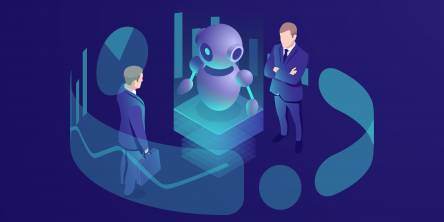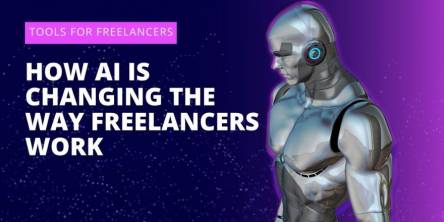How Artificial Intelligence Is Reshaping the Job Market and What Skills AI Engineers Need Today

Artificial Intelligence is no longer a theoretical realm, the sole province of research labs or sci-fi headlines. It's a part of reality—one that's changing the way businesses do business, the way people work, and the character of the world workforce of the future. From customer service chatbots to predictive applications that control logistics, AI is at the center of innovation today—and at the center of human capital strategy tomorrow.
But whereas AI is revolutionizing industries, it's also revolutionizing the skills that professionals need to have to stay competitive. Few places is this more apparent than among the occupations of AI engineers, who are not only designing these systems but helping companies to redesign decision-making, data processing, and growth.
While intelligent systems and automation have taken over more routine and repetitive tasks, there is a greater demand for high-level, system-thinking, and creative thinkers. Gone are the days of AI engineers confining themselves to technical teams—AI engineers are now part of product planning, ethical considerations, and customer experience. This shift has transformed AI engineering from a niche skill to a cornerstone of modern business.
AI’s Role in Reshaping the Workforce
Perhaps most importantly, one of the most profound effects of AI is how it's changing the very fundamentals of work. AI software can accomplish in minutes what took whole teams of people to do—reading contracts and sifting through datasets, writing marketing copy or suggesting code improvements. And while this automation is often framed as a killer of jobs, the bigger picture is more nuanced.
Rather than replacing jobs, AI is reshaping them. It's allowing specialists to ascend the value chain—to stop spending time on drudge work and start focusing on insight, judgment, and imagination. In medicine, AI is aiding diagnosis so doctors can spend more time with patients. In shipping, it's optimizing delivery routes while people take care of customer relationships. Everywhere, AI is improving work rather than eliminating it.
But in order for all of this to succeed, companies need the individuals who are cognizant of the technology behind it all. AI engineers have become central to this, creating models that learn from data, improve with experience, and interact responsibly with the world around them.
What Today’s AI Engineers Actually Do
AI engineering is no longer just building neural networks in isolation. AI professionals nowadays are required to know the entire life cycle of an intelligent system—from data collection and cleansing to monitoring and deployment. They're typically part of cross-functional teams, where they collaborate with product managers, ethicists, UX designers, and domain experts to ensure that the models they build are not just accurate, but also usable and ethical.
This requires a wide range of skills: from statistical analysis to software development to data engineering, and knowledge of tools like TensorFlow, PyTorch, and cloud platforms like AWS or Azure. But in addition to technical expertise, successful AI engineers also have communication skills and judgment. They need to be able to explain complex systems to non-technical decision-makers and exercise judgment about which data to use, how to train models fairly, and when a system is primetime-ready.
As companies across industries continue to invest in AI, they're ever more likely to look beyond traditional tech hubs when hiring. That's created new global opportunities for engineers from all locations—especially in remote-first environments. Platforms offering remote careers in AI are making it easier for skilled professionals to contribute to top-tier AI initiatives from anywhere in the world.
The Rise of Remote AI Teams
AI work is inherently well-suited to distributed collaboration. Regardless of whether an engineer is building a model in Bangalore, São Paulo, or Berlin, the infrastructure is cloud-based, the data are stored online, and the output is often integrated into web-based systems. That versatility has made remote AI work one of the most sustainable and scalable jobs in the technology ecosystem.
Remote-first businesses aren't merely staying abreast of new hiring trends—advertently or otherwise—they're tuning in for them. They're constructing global-diverse groups of AI scientists who bring unique perspectives to model architecture, bias detection, and linguistic diversity. These remote teams are innovating not in spite of the distance, but due to it.
To AI engineers, this means more access to career-defining jobs with the freedom to work and live wherever they please. It also means more authority and accountability. Distributed teams rely on documentation, accuracy, and front-foot engagement. The engineers that succeed in this setup are those that can manage complexity independently and contribute value without needing to be supervised.
Skills That Set AI Engineers Apart Today
Math, programming, and machine learning fundamentals do not change. However, by 2025, AI engineers must go beyond the fundamentals. What distinguishes the stronger candidates from the best is their ability for understanding real-world implications, risk foresight, and scale- and responsibility-aware design.
Data literacy is crucial—but data ethics is equally so. Engineers who are equipped to manage issues like algorithmic bias, model explainability, and the cultural implications of AI are becoming precious commodities for modern companies. In most cases, it's less about what the system can do—but what it should do—and AI engineers need to be part of that conversation.
Equally important is the ability to work in between disciplines. AI projects today no longer live in isolation. They're coupled with customer experiences, business goals, and regulatory climates. The engineers who can fill that intersection space—proficient in technology and business dialects—are emerging as the new standard.
Eventually, continuous learning is not a choice. The AI ecosystem evolves faster than many others. New model architectures, optimization methods, and regulatory standards continually emerge. Engineers who find time for up-skilling, community contribution, and open-source contribution are not only staying on par—they're setting the direction of the industry.
Looking Forward: AI as a Career, Not Just a Skill
The dawn of AI has brought about a surge of people learning machine learning basics, taking online courses, or experimenting with open-source models. But as the industry grows up, companies are no longer looking for enthusiasts—they're looking for professionals for whom AI engineering is a core career.
It's about building strong foundations, practicing on real projects in the real world, understanding how to put models into production, and ongoing involvement in the ethical discussion regarding the impact of AI. It's about picking roles that are challenging, connect you with smart teams, and enable you to contribute beyond code.
The job market for AI engineers is growing—but it’s also evolving. Titles are becoming more nuanced (ML engineer, data scientist, applied AI researcher), and expectations are rising. But for those who are serious, curious, and committed to growth, the opportunities are unlike anything we’ve seen before in tech.
Similar Articles
Have you observed that while some websites are hardly cited in AI-powered search outcomes, others emerge more frequently?
The goal of AI is to enable businesses to operate more efficiently, develop better products, and support QA teams in completing their tasks more effectively.
Bring still images to life with make a photo talk AI tools. Learn how to create a natural AI talking avatar using Media.io's powerful audio-video models and templates.
AI agents are no longer an experiment in financial institutions. They are becoming the operational engine that powers real time decisioning, proactive fraud defense, precise risk scoring, and automated compliance workflows.
Banks are facing a moment of truth. Customer expectations are rising faster than most institutions can reshape their operating models.
How AI SDRs turn first contact into booked meetings with smart outreach strategies in this step-by-step journey breakdown.
How AI is transforming freelancing by boosting productivity, streamlining tasks, and reshaping the future of independent work.
AI chatbots are reshaping scam prevention with real-time detection, deepfake defense, and personalized protection against cybercriminals.
When I first started working in branding, creating a logo was a long and expensive process. Ordering from a designer required weeks of discussions and a budget that small businesses often couldn’t afford.









